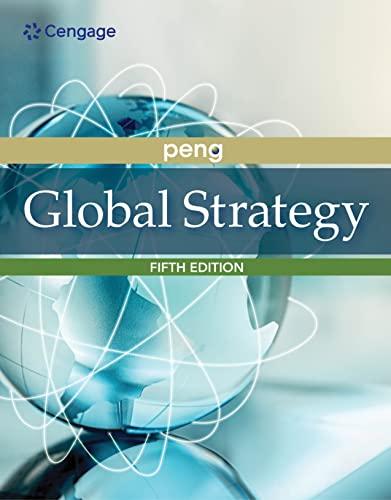Question
Innovating fresh produce supply chain through International Produce Limited (IPL)/Wal-Mart model IPL is a unique supply chain strategic model within the sector of fresh produce
Innovating fresh produce supply chain through International Produce Limited (IPL)/Wal-Mart model IPL is a unique supply chain strategic model within the sector of fresh produce products. The model is focused on controlling the supply chain with four key benefits: Improved shareholder return Reduced cost to the consumer High quality products Sustainability for the growers It started as a joint venture between two companies: Bakkavor and Thames Fruit, owned by the grower Emilio Theresa. The success of this over 5 years led to IPL being bought by the Asda/Wal-Mart group. Traditional model In a normal supermarket supply chain, you have supermarket buyers or traders, in contact with importers. The importers will then buy from exporters anywhere around the world, and these exporters will buy from growers. Consequently there are a number of different people involved in the chain all collecting their margin. Added to that is the cost of logistics, i.e. the cost for warehousing and transportation. In the case of fresh produce, a significant amount comes from South Africa and South America by temperature-controlled reefer transportation. New model In the new model, IPL takes out the middlemen. Therefore Asda directly engages with the growers and exporters. There are two different inbound flows: the products either go direct to an Asda distribution centre, or go to one of the two IPL sites. The UK sites are situated in Normanton near Leeds and in Spade Lane near Sittingbourneboth in the UK. Here, the product is picked, packed and sent to the DC's. Cost reduction strategy: postponement of pick and pack In the beginning of the project, everything was about how much of the product do you get packed direct at sourceas this was the perceived cheaper option than packing in the UK. But actually, this supply chain approach did not go well with the requirements the supermarkets had in terms of changing pack size forms and the total logistics costs. These now are balanced carefully against the reduced packing costs, if sourced outside of the UK. When the products are packed, they must immediately have their shelf life displayed on the packaging. Hence the later the product is packed, the more options the supply chain can utilise. Additionally, if the product is packed later downstream, the decision on pack size form is postponed until the demand is more certain which gives more flexibility. With regard to the total logistics costs, when you ship loose plums, 960 kg can be accommodated on a pallet; if you punnet (the packaging format for the consumer) and then ship, you can only get approximately 630 kg on a pallet. Immediately, everything you might save from a cheaper packing price might be lost as you transport packaging around the globe with no added value. An additional benefit of postponing the packaging is that there is an improved product quality recovery ratio. This is because if some poor quality fruit is detected in a punnetthe entire punnet should be destroyed. Whereas if detected in a loose shipment, the single fruit can be isolated and removed resulting in significant environmental benefits. Quality strategy: vertical integration of quality control Each DC has an Asda Quality Control (QC) presence on site: they work together with IPL, to make sure that all fresh produce leaving the depot is in the right quality condition. The benefits are clear: rather than sending products to the stores and getting them back as a rejection, QC on site inspect stock before sending it out and thereby reducing the number of store rejections greatly. This means that 90% of the IPL products are QC checked whereas a normal supplier would get around 2% checked. As a consequence, IPL is driving down their customer complaints dramati- cally. Although the standards are a lot tougher, for the whole business it makes sense to have the onsite presence. Therefore QC at IPL is an integral part of their vertically integrated supply chain. Finally, fresh produce is a living product: the closer to store you can pick and pack it, the better it is.
Summarize the case study.
Compare the traditional model with the new model.
Explain the cost reduction strategy and the quality strategy.
Discuss the future of IPL. Be sure to include your perspectives.
Step by Step Solution
There are 3 Steps involved in it
Step: 1

Get Instant Access to Expert-Tailored Solutions
See step-by-step solutions with expert insights and AI powered tools for academic success
Step: 2

Step: 3

Ace Your Homework with AI
Get the answers you need in no time with our AI-driven, step-by-step assistance
Get Started


